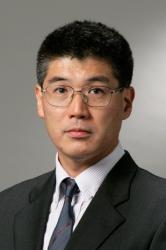
Designed by Freepik
Many in the high energy physics community might know that Japan’s ILC Advisory Panel which examines the ILC project for the Japanese Ministry of Education, Culture, Sports, Science and Technology (MEXT), released its recommendation on 14 February. Following that, KEK issued a statement about what steps they will take in response to the recommendation.
I would like to point out that the Japanese language is rather ambiguous, and various contexts are said only between the lines. I hear that many of you thought it was bad news when you read the English translation of the text. Here, I would like to clarify the meaning of the recommendation. It was not “totally negative”, rather, it makes the project move one step ahead.
One of the issues that caused misunderstanding is this expression in the recommendation: “shelving the question of hosting the ILC” (as translated in KEK’s statement). Some interpreted this statement to mean that Japan is no longer interested in hosting the ILC, but that is not the case. It does not mean that Japan has given up wanting to host the ILC.
The Proposal for the ILC Preparatory Laboratory (Pre-lab) was published by the ILC International Development Team (IDT) in August 2021, and it was submitted to Japan’s Ministry of Education, Culture, Sports, Science and Technology (MEXT). It stated “Some indication that the Japanese government is moving towards expressing its interest in hosting the ILC in Japan as an international project will be necessary”. What IDT asked for was “some indication”, not an official statement to host the ILC or an interest to do so. Yet it is a very delicate and difficult issue for Japan to address. Actually, this has become an obstacle for the fair discussion on the international cost sharing to start, a chicken-and-egg problem. In order for the discussion on international cost-sharing to begin effectively, it is vital to prepare an environment where each partner can be on an equal footing. For this reason, they recommend setting aside the site issue for now, to move the discussion on cost-sharing forward, removing the constraining condition. This is actually a positive move.
It truly is crucial to move the discussion on cost sharing forward for the realisation of the ILC. In the recommendations, the expert panel pointed out that the outlook on such discussion stays uncertain, and it is important to foster an environment where government officials from each country can discuss this subject frankly and constructively. Since 2019, several rounds of discussions have been held, but they did not produce the anticipated results, as pointed out in the recommendations. I believe the reason for this is the lack of an environment which enables discussions among governments, in addition to the chicken-and-egg problem mentioned above. Needless to say, the ILC is an enormous project which will have a very large cost. I’m afraid that the discussion of cost sharing of this magnitude cannot proceed unless a considerable relationship of mutual trust has been established among the governments.
The other part that lead to misunderstanding is the statement “taking into account the progress in the various studies such as the Future Circular Collider (FCC) and ILC”. Some interpret this line as the recommendation to choose between the ILC and the FCC. It is NOT. There is a clear understanding of the timing difference between the two projects. As I mentioned above, a considerable relationship of mutual trust among the governments is needed to be established to move the discussion on cost-sharing forward. To that end, it is important for the governments to discuss how to advance various large-scale projects globally. In order for the governments to move such discussions forward, we, the researchers ourselves, need to reexamine the medium- to long-term plans for future global particle physics projects, and broaden the understanding on the importance of building the ILC in that global context.
Who will take the initiative in these international discussions is another important point. Since the IDT is an organisation whose mission is to realise the Pre-lab for the ILC to be established in Japan, the Pre-lab proposal stipulated that Japan should take the initiative. We still hope to realise the ILC in Japan, so if possible, we would like Japan to take the initiative. What we researchers can do is to create an environment that makes it easier for Japan to take the initiative. How do we realise fruitful cost sharing negotiations? This is not an issue just for Japan, and I would like to see researchers from relevant countries build relationships with their own governments. I’m hoping that researchers around the world will work with their own funding agency.
It’s unfortunate that we couldn’t move on to the Pre-lab right away. On the other hand, I would like to emphasise that the panel understands the need for prototype development and engineering demonstration. We believe that the ILC is mature in technology and is ready to move to the Pre-lab phase. In order to prove that the ILC is a feasible project realised by international collaboration, it is important to show the actual components. The recommendation suggested moving high-priority parts of the work packages forward. Once the budget for this activity is approved, we can gain credibility that we can build the actual components, prove that the technology is mature, and the scientists from around the world can work together. And those efforts should be carried out by international cooperation, with each government bearing cost and responsibility. By doing so, we can demonstrate that it is possible to realise the ILC.
Here, I would like to remind you once again that the ILC is an enormous project. Regarding this recommendation, it is easy to react by saying “ILC is dead” or criticising “Japan is not interested”. However, this is not a project that can be talked about in such a simple manner. You need to double down. In the “new normal” with the COVID-19 pandemic, the research environment and the international environment and the situation of national finance are changing dramatically. There is no doubt that the stature of fundamental science is weaker than in the second half of the twentieth century because of the diversity of scientific research. I also think there has been an increase in mistrust of science because of a variety of accidents and disasters. Under such circumstances, it is necessary for stakeholders around the world to calm down and think about how to proceed with the ILC.


Dear Professor, dear Shoji,
Allow me to express all my sympathy and wishes of success for the formidable task that you are starting. The moment is dramatic and, as you seem to understand perfectly, misunderstandings can be deadly. The East and the West are meeting and, from personal experience, I know that it is as delicate and dangerous as having two tectonic plates which meet.
Sometimes it goes well and I always hear that Clemenceau, a major french statesman, got along very well with you guys, recalling that we were allies during the first world war.
ILC needs a convincing and strong leader and I hope, I am convinced, that you will play that essential part very well. I will repeat here what I already said at the ILCX round table: this project allows energy expandanpility and until LHC has reached solid conclusions, we need to have a machine which can cope with discoveries.
Best wishes,
François Richard, former director of LAL Orsay, retired physicist at IJCLab